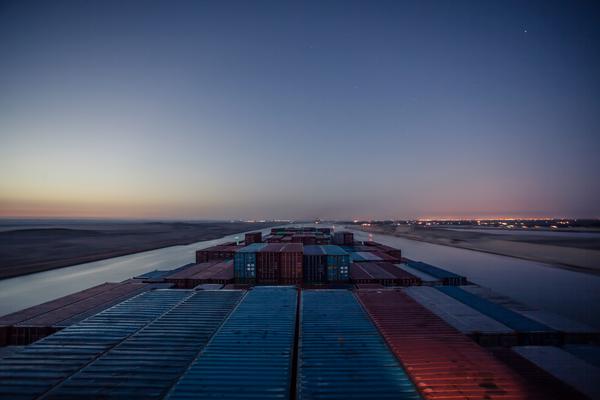At the time of writing, the city and suburbs of Leicester were under local lockdown due to a spike in Covid-19 cases, with allegations that this was linked to some garment factories that had not only continued to operate as the pandemic took hold, but also increased their workforce without protecting them. These events throw a light on exploitative work practices that have persisted for years and underline the importance of the RSA’s Regenerative Futures work, which explores the potential for a more sustainable fashion industry.
Anti-Slavery International, a non-governmental organisation, defines modern slavery as “the severe exploitation of other people for personal or commercial gain”. The International Labour Organization and the Walk Free Foundation (WFF) estimate that worldwide there are 40 million modern slaves: 71% are women and girls and 25% are children. The WFF Global Slavery Index 2018 estimated the number of victims of modern slavery in the UK at 136,000.
According to Anti-Slavery International:
Migrant workers are targeted because they often don’t speak the language, have few friends, have limited rights and depend on their employers. Forced labour happens in the context of poverty, lack of sustainable jobs and education, as well as a weak rule of law, corruption and an economy dependent on cheap labour.
Unprotected workers
In 2015, the Ethical Trading Initiative commissioned research from the Centre for Sustainable Work and Employment Futures of the University of Leicester into the growing UK garment and textile industry. The report, written by Dr Nik Hammer, draws on interviews with a wide range of stakeholders in the UK garment and textiles sector, including retailers, suppliers, manufacturers and workers. Focusing on Leicester, it found that many workers in the worst factories were earning around £3 per hour (compared with a then National Minimum Wage of £6.50). It highlighted that workers (mostly from migrant communities) were being subjected to verbal abuse, bullying, threats and humiliation, as well as inadequate health and safety standards.
Jump forward to June 2020 and a report by Labour Behind the Label, a UK-based non-profit co-operative organisation that works to improve conditions and empower workers in the global garment industry, claimed that staff in Leicester sweatshops reporting symptoms of Covid-19 were being forced to work during the pandemic in unsafe conditions. Depending on the paper you read or political party you follow, you may have heard versions or elements around this story. Was this the latest manifestation of a failing economic system that puts profit before people and sees any sort of regulation as an attack on free market liberty? Or is the machinery of government and the split between local and national decision-makers proving to be a barrier to a rapid effective response?
Some have taken the evidence to show that a negligent city council has turned a politically correct blind eye to this practice, and that this has now led to a spike in Covid-19. Others have argued that successive cuts to the Health and Safety Executive, police and local government – combined with the government decision to reject all of the Environmental Audit Committee (EAC) recommendations for improving the fast fashion industry – left the city council relatively powerless and created a situation where unscrupulous employers are able to exploit workers. In a 2019 report, the EAC had recommended that the government should publish a publicly accessible list of retailers required to release a modern slavery statement, supported by an appropriate penalty for those who failed to report and comply with the Modern Slavery Act. In addition, it called for a more proactive approach to enforcement of the National Minimum Wage and a new Extended Producer Responsibility scheme to reduce textile waste.
Labour Behind the Label’s report highlighted the inflated bonuses of directors of boohoo (a fast fashion company); the company’s value dropped by £1.5bn. Meanwhile, some Conservative MPs claimed that there were up to 10,000 modern slaves in Leicester working in garment factories.
Behind this scandal are issues of regulation and enforcement, combined with cuts in funding, and confused and cumbersome decision-making processes between regulatory bodies and local and national government. A steep rise in poverty, restricted access to benefits and the pressure to win global contracts at the lowest price possible, have created a situation where poor people, many of whom are female and migrant, are exploited. When action is taken it often leads to the deportation of the workers rather than sanctions against those in the supply chain who are profiting from, encouraging and supporting this exploitation.
Getting value for money?
Sadly, there does seem to be a small group of people whose motivation is getting rich, staying rich and sharing as little as possible; where talk of purpose, corporate social responsibility and shared vision is anathema. Expecting them to do the right thing, self- regulate and treat their workers fairly is as naïve as expecting a wolf to extol the virtues of veganism.
Linked to this is the fact that many people like a bargain; if they can purchase a pair of jeans for a fiver, they see that as a good thing. The politician who starts telling people, especially those living on low incomes, that they need to pay more for their clothes is one who may well expect to see their popularity fall. In the age of neoliberal globalisation, the consumer is sovereign and it is this ubiquitous belief system that has caused us to collectively turn a blind eye to the real cost of fast fashion.
Despite all the historical coverage of sweatshops in Leicester, the allegations of there being up to 10,000 modern-day slaves working in them, and a rock-solid Labour council and three local Labour MPs, there does not appear to have been widespread sustained morale outrage or a local focused political campaign to end modern slavery. How can such widespread human rights abuse not have been a sustained, burning issue filling local, if not national, media with story after story while politicians sought to right this wrong? Would the response be different if this were happening to white men in Guildford? Is this a blatant case of Black lives appearing to matter less than white ones and of women being undervalued and underpaid in the workplace?
Sarah O’Connor, an investigations correspondent at the Financial Times, wrote about her experience of uncovering modern slavery in Leicester and alleged:
A local official in Leicester warned me in 2018 that, if I published my story, I would cause mass unemployment for people with no other options. In fact, nothing changed.
If we stopped to think, we would work out that outfits for a fiver are not made without someone being badly ripped off. Yet we go along with it. Our delusion is helped by convenient myths or racist stereotypes: the people being exploited are not really being exploited, they are working cash in hand; if the UK did not allow this, another nation would, and we would see unemployment rise; if people were being exploited they would not go to work every day; compared with where they come from, this is luxury. And so on.
Cleaning up fashion
One problem is that the people being exploited lack voice and representation. A councillor or MP might find themselves doing a lot more work to support calls by organised parents for a zebra crossing near a school, than responding to the needs of modern- day slaves, many of whom may struggle with communicating in English, are not unionised, may be wary of officialdom and lack internet access.
Yet, anyone who has worked or lived in the affected areas of Leicester, as I have, will know that they are not populated by victims, but vibrant and creative communities who against all the odds make a success of their lives. Jump forward a few generations and the children of textile workers have degrees, professional jobs and have moved to the city suburbs. In short, these people are a huge resource, bringing much to the city, and, if supported, could contribute even more.
Studies carried out during the pandemic, including a poll commissioned by the RSA in April, show that, as we move on from lockdown, people want a fairer, more just and green society. The huge drop in the value of boohoo shares suggests that investors as well as the public are ready for change. We know that there are many ethical textile factory owners in Leicester, but the gaps in regulation and enforcement and the ‘greed’ within global supply chains makes it very tough for them to operate when sweatshops undercut them. We know the local council has asked for a unified regulatory body and licensing agreements, which would enable them to act swiftly. Surely, then, it is time for local MPs, councillors, police and regulatory bodies to combine with national government to put an end to this practice?
At a time when many are concerned about the future of city centres and the decline of the high street, we could be innovative and connect the skills and expertise of the workers we liberate with the expertise of the many honest textile factory owners in our city to build an industry that pioneers sustainable practice and worker participation. This might require investment from government, which could persuade some of the big fashion labels to invest some of their profits into an ethical textile industry.
An RSA briefing on the sustainable recovery of the fashion industry published in May has shown there is a strong appetite for change in the fashion industry after the pandemic. Fewer than one in five (19%) of people believe the industry should return to business as usual and 50% think the industry should do whatever it takes to become more environmentally sustainable.
Surely, now is the time for a deliberative discussion about the type of economy we want; for leaders to work with people and seek discussion, debate and consensus. Such discussions could be optimistic, bold and prepared to think outside of the neoliberal box we have trapped ourselves in for the past 40 years.
We could become a standard bearer of locally owned business that benefits the community and shows the world what a united Leicester can achieve. The goodwill surrounding such an enterprise and its connections with the Green New Deal ethos of our post-pandemic times could make it a winner. Imagine Leicester City running out onto the pitch in shirts made by a local ethical supplier.
We have just seen SpaceX return safely to earth, living proof of what human creativity and ingenuity, backed by the public and private sector working together towards a shared vision, can achieve. As we talk about #BuildBackBetter and a #GreenNewDeal – as well as Black lives mattering – putting an end to fast fashion, consumerist culture and exploitation is well within our grasp. We can and must make this happen.
Kieran Breen has worked in development in Africa, Latin Central and North America, and the UK. He is currently the CEO of Leicestershire Cares and lectures on youth and global issues at De Montfort University.
Related articles
-
All we are saying is give degrowth a chance
Comment
Chris Oestereich Sam Bliss
A decade ago, a container shipping worker had an epiphany, and it caused him to question the very basis of his business. Sam Bliss and Chris Oestereich take up the story.
-
Collective Futures: insights from the journey so far
Blog
Hannah Webster Ella Firebrace
Collective Futures may allow us to transition towards a more rebalanced and regenerative future. We’ve been exploring how the practice might do this.
-
Energy into action
Comment
Mari Nishimura
We need swift and radical change in capabilities, innovation and investment to save the planet. Read Mari Nishimura, from the United Nations, own view on moving towards a healthy planet.




Be the first to write a comment
Comments
Please login to post a comment or reply
Don't have an account? Click here to register.